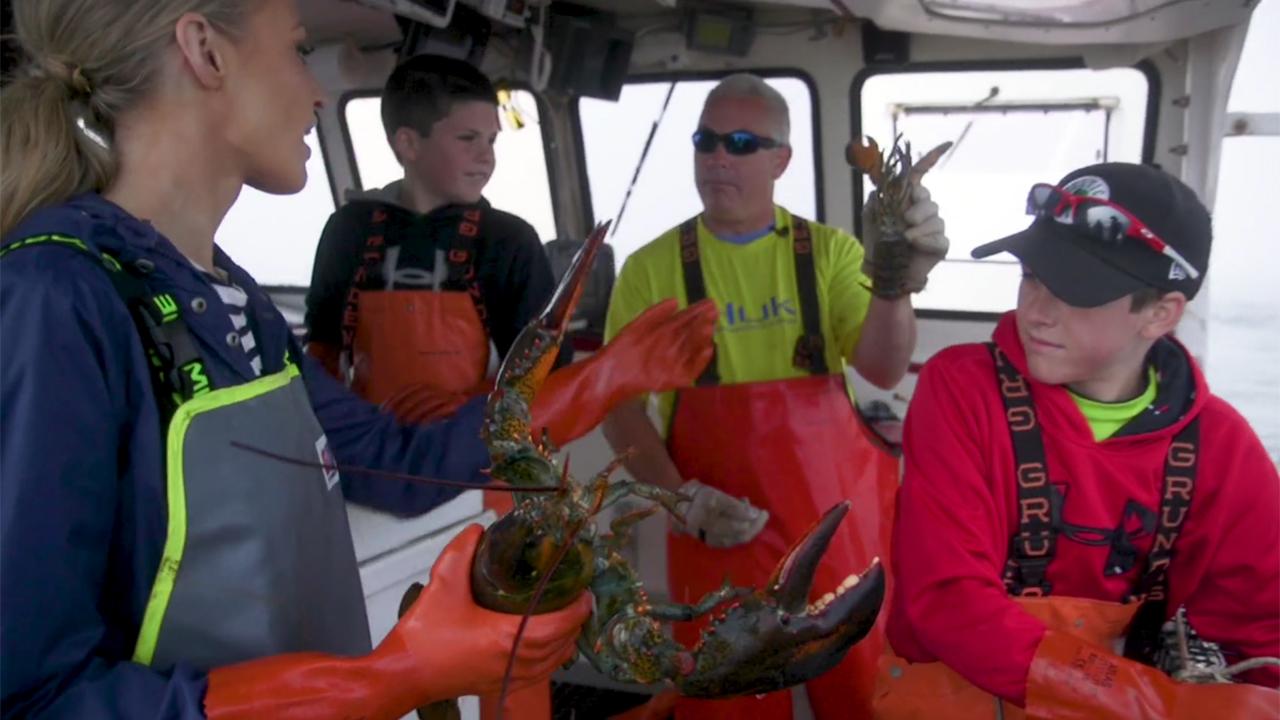Maine lobster fishing is a family business spanning generations
“I got one rule aboard this boat. This is the gaffe. This is what we use to hook the buoys with. My only rule is if you get hit in the head with the gaffe, it’s your own fault.”
With those words of wisdom, Sonny Beal set out with sternmen Polie Beal and Jason Dyer (plus a couple of younger helping hands) on his boat the Nancy Anne into the cold waters off of Beals Island, Maine, pop. 508, to do what the Beal family has been doing since the 1700s...catch lobsters.
“We usually leave 4:00, 4:30 in the morning,” Sonny told Fox News. “We’ll sail out, it probably takes us an hour to get to our gear, we haul 20-22 trawls a day, usually about 400 traps.”
Members of the Beal family have been getting up before the sun generation after generation after generation.
“Beals Island was founded by Manwarren Beal, and he’s a descendant or pretty much all of us Beals who live on the island and in Jonesport as well,” Sonny said. (Jonesport and Beals Island are separated by a short bridge.) “It’s kind of a tradition around here. It’s a great place to live and the tradition of lobstering goes way back. My father taught me, his father taught him, and I’m here to teach these guys and keep the tradition going.”
“These guys” are Kaden and Damon, Sonny’s young sons, who were helping out as crew on the Nancy Anne the morning we tagged along, and who Sonny hopes will continue the trade he learned from his father.
“He grew up right here lobster fishing,” Sonny said of his dad. “His first lobster boat was a rowboat. His father would tow him down the bay, and he’d row his way home hauling his traps on the way home, and just grew up doing that.”
Not only that, Sonny’s dad built the fishing boat we rode out on, the Nancy Anne, and named it after Sonny’s mom.
“He and one of his son-in-laws and his grandson helped him build the boat. He ordered the hull and then built the top and the rest of it.”
It’s the Nancy Anne that is the backbone of the Beal family business.
“On a good day you can catch a lot, 4,000 pounds,” Sonny explained from its deck. “But that doesn’t happen very often.”
Considered “poverty food” in colonial days, lobsters are now a delicacy around the world that fetch top dollar. But with the price of lobster fluctuating during the season, and international trade pressures causing additional volatility, lobster fishing is never a sure thing.
Still, for Sonny and many of his neighbors on Beals Island, it’s a way of life that they expect to continue for generations to come.
Manwarren would be proud.




















